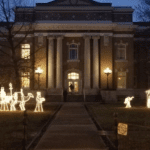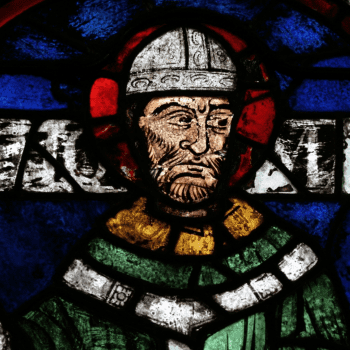This November is the 400-year anniversary of the Pilgrims arriving at Plymouth, Massachusetts. They arrived on a cargo ship never intended to carry passengers, called the Mayflower.
On Nov. 11, 1620, British Separatist, otherwise known as Pilgrims, landed on the Northern tip of Cape Cod in Massachusetts seeking religious freedom.
At the time, the King of England, King James, decreed that it was illegal for anyone to worship, even outside, if was not through the Church of England. If they disobeyed, they were arrested, put in jail, and many were killed.
Some fled to Holland, thinking they would find religious freedom there.
The Mayflower initially departed from Southampton, England, on August 15, 1620 and docked in Plymouth, England. Separatists had booked passage on a second ship, the Speedwell, to set sail from Holland. But the ship returned twice to port because it structurally couldn’t make the voyage. By September 16, the Mayflower set out alone from Plymouth, England, after taking on more supplies and some people from the Speedwell. Among the Mayflower’s most-distinguished voyagers was William Bradford, who would become the governor of Plymouth Colony in Massachusetts.
Their plan was to set sail for Virginia. But God had other plans.
They embarked and were on the ship for 66 days surviving treacherous storms. Fierce winds providentially blew them far north of Virginia to Cape Cod, an empty and uninhabited land.
Many Pilgrims were sick on the journey. When they reached Cape Cod, five died on board the ship in the harbor. That winter more Pilgrims died.
Still—they pressed on—and created one of the most fundamental governing documents in the history of the U.S.
On November 11, 1620, they established the Mayflower Compact, which was signed by the adult men on the ship before disembarking the Mayflower.
The Mayflower Compact clearly stated that the purpose of their voyage was for “the glory of God and the advancement of the Christian faith.” The agreement established the idea of self-governance—laws made by the people for the people.
The full text of the Mayflower Compact reads:
“In the name of God, Amen. We whose names are underwritten, the loyal subjects of our dread Sovereign Lord King James, by the Grace of God of Great Britain, France, and Ireland, King, Defender of the Faith, etc. Having undertaken for the Glory of God and advancement of the Christian Faith and Honour of our King and Country, a Voyage to plant the First Colony in the Northern Parts of Virginia, do by these presents, solemnly and mutually in the presence of God, and one of another, Covenant and Combine ourselves together in a Civil Body Politic;
“for our better ordering and preservation and furtherance of the ends aforesaid; and by virtue hereof to enact, constitute and frame such just and equal Laws, Ordinances, Acts, Constitutions and Offices from time to time, as shall be thought most meet and convenient for the general good of the Colony, unto which we promise all due submission and obedience.
“In witness whereof we have hereunder subscribed our names at Cape Cod, the 11th of November, in the year of the reign of our Sovereign Lord King James, of England, France and Ireland the eighteenth, and of Scotland the fifty-fourth. Anno Domini 1620.”
The Pilgrims were known as Separatists, members of a Puritan sect who split from the Church of England, the only legal church in England at that time. (Other Pilgrims were still members of the Church of England; not everyone shared the same belief.) But they came together as a group of citizens to be governed by “just and equal laws, ordinances, acts, constitutions and offices, from time to time, as shall be thought most…convenient for the general good of the colony; under which we promise all due submission and obedience.”
In 1802, John Quincy Adams (a congressman, secretary of state, and 6th president of the U.S.) described the Mayflower Compact as “the only instance in human history of that positive, original, social compact.” It is widely believed to have influenced the Declaration of Independence and the U.S. Constitution.
To celebrate the 400-year anniversary of the Pilgrims landing in Plymouth, you can participate in a virtual field trip and learn more about the Pilgrim’s colony at https://www.plimoth.org. Next year, they are celebrating in person the 400th anniversary of the first Thanksgiving.
One of the best documentaries about their journey is called “Saints and Strangers” produced by National Geographic, which can be watched on demand. The below trailer is from 2015.















